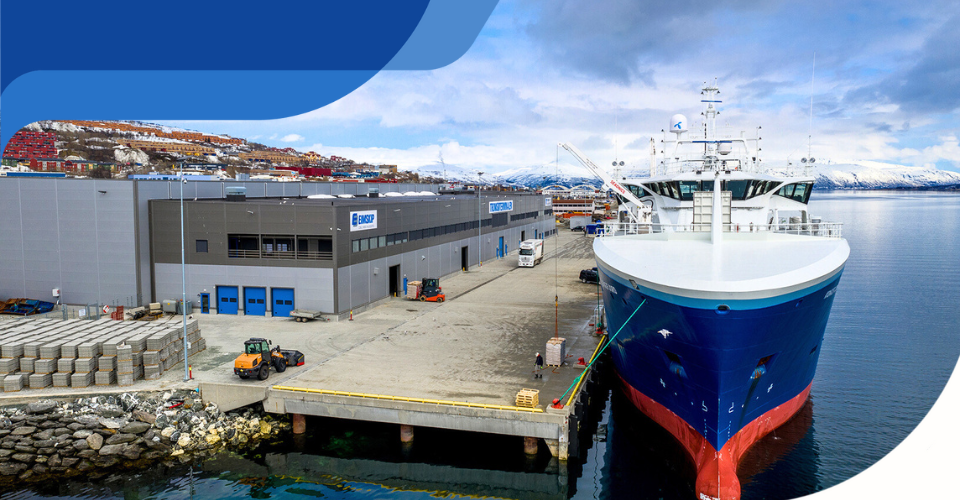During the current period, ocean freight rates continue to rise, causing significant pressure for export businesses. Less than Container Load (LCL) shipping is the solution to address the disadvantages of Full Container Load (FCL) and particularly the price disadvantage in the current situation.
However, in the process of LCL shipping, many people may wonder about the differences in responsibilities between the parties involved compared to Full Container Load (FCL) shipping. Let's find out more about this with Eimskip in the following article.

PARTY RESPONSIBILITIES WHEN LCL SHIPPING
Responsibility for shipping goods
Negotiate and sign a contract that clearly defines the responsibilities and delivery terms (Incoterm) of both parties - this is the premise for the next steps.
Work with the freight forwarder: choose a transportation process with the forwarder to understand your responsibilities in the following stages:
- Door to Door: a type of transportation where the forwarder takes full responsibility for transporting the goods from the exporter's location to the importer's location (choose this method to optimize time and reduce risks during transportation).
- Port to Port: a type of transportation where the forwarder is responsible for the import-export process (transportation, customs procedures, cargo insurance, etc.), the forwarder only takes responsibility for transporting the goods from the origin port to the destination port.
- Door to Port: a type of transportation where the forwarder is responsible for the procedures to transport goods from the exporter's warehouse to the final destination port.
- Port to Door: a type of transportation where the forwarder is responsible for the procedures to transport goods from the origin port to the importer's warehouse.
Provide information about the goods to the forwarder such as volume, weight, number of packages, number of cartons, and the name of the goods and the recipient.
Complete customs procedures and provide the necessary documents related to the goods, transportation, etc., to the forwarder.
Responsibility for the freight consolidator
Receiving information about the LCL cargo that needs to be packed/consolidated.
The freight consolidator will work with the shipping line to make a booking (it is recommended to choose a consolidator specializing in routes from the origin port to the destination port to ensure timely delivery and availability of weekly sailings).
Arranging, sorting, packing the LCL cargo into containers and transporting as requested.
After the cargo is loaded onto the vessel, the service company will issue the House Bill of Lading (B/L) to the customer and receive the Master Bill from the shipping line.
Handling the goods upon arrival at the destination port.
Responsibility of the consignee for the LCL cargo
Arranging import paperwork and customs procedures for the shipment.
Presenting a valid bill of lading to the freight consolidator or their representative to collect the cargo at the destination port's container freight station (CFS).
Depending on the type of contract, whether it's Door to Door or Port to Port, the responsibility of the consignee will begin at the final unloading port or at the agreed-upon location.
What are the forms of transportation for LCL cargo?
There are two forms of transportation that businesses can choose for LCL cargo:
- Direct: In this form, the cargo will be transported directly from the origin port to the destination port using a single vessel.
- Via: When transporting cargo from the origin port to the destination port, it may need to pass through multiple transshipment ports, where containers are loaded and unloaded before being transferred to the destination port.
Eimskip has provided information about the responsibilities of parties involved in the LCL service. However, depending on the type of goods and other factors, the responsibilities between parties can be adjusted in the contract. If you need information about handling LCL cargo or advice on packing/consolidating LCL cargo for your business, please contact Eimskip for free consultation.







